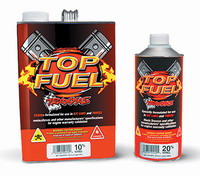Group of measurement experts rejects "hot fuel" proposal
A group of measurement experts rejected a proposal that might save U.S. motorists between 3 and 9 cents a gallon (between 0.8 and 2.4 cents a liter) at the pump.

The proposal, debated Wednesday in Salt Lake City, targeted the so-called "hot fuel" effect. As temperatures rise, liquid gasoline expands and the amount of energy in each gallon falls. But because U.S. gasoline pumps don't adjust for temperature changes, motorists who buy gas that's hotter than the government-standard 60 degrees Fahrenheit (15.5 degrees Celsius) get less bang for their buck.
The effect could cost U.S. drivers more than $1.5 billion (1.09 billion EUR) in the summertime, according to the House Subcommittee on Domestic Policy, which recently addressed it in hearings.
Most members of the National Conference of Weights and Measures, a group of state and county experts, voted in favor of a proposal on devices at gas stations that would compensate for temperature differences, but not enough for passage.
The result was welcomed Thursday by oil companies and gas station owners who said installing the devices would be too costly, and that the science behind the hot fuel phenomenon needs more investigation.
"Given that no thorough independent study looking at both the scientific and economic impacts of temperature compensation has ever been conducted, any other decision would have been premature," said Lisa Mullings, president of the trade group National Association of Truck Stop Owners.
The group estimates that each retrofitted pump could cost between $1,500 (1,088 EUR) to $3,800 (2,756 EUR).
Consumer advocates were disappointed with the move.
"This is a defeat for consumers and for the economy," Rep. Dennis Kucinich told the Los Angeles Times.
Subscribe to Pravda.Ru Telegram channel, Facebook, RSS!


